A Glance Back, and Forward
In Washington, the more things change, the more they stay the same. Except when they get worse. The recent Democratic Party Presidential Debates had me thinking on the enclosed essay on campaign finance, fished out of the wayback machine, that appeared in Barron’s. Way back, over two decades. At the time, I foolishly thought disgust with begging, with dialing for dollars, would propel politicians to embrace and expand public financing. I didn’t count on their fear of risking incumbent advantage and didn’t know candidate Obama would come along to help lobotomize the concept. And I didn’t realize how entrenched and powerful the lucrative campaign finance/public relations-military-industrial complex would become, sprinkling its meth into Pandora’s Box as it greases the big money narratives from FOX to MSNBC, and beats the drums of war.

Too much of the precarious Fourth Estate, with career paths now often leading to public relations, has become subservient, to advertising dollars and/or to the overlapping interests of those who own media. Witness CNN’s Jake Tapper doing corporate PR’s bidding as a debate “moderator” during Tuesday night’s debate with Bernie and Elizabeth Warren. He sounded almost frantic trying to get the predictable knives in and cutting short responses not going his way. I half-expected to see a CNN stagehand carrying a potted plant walking back and forth behind the two progressives every time they spoke, the plant growing taller with each passage across the stage. Vaudeville, why not?
Forgive a few anachronisms for a piece written in late ’96. For example, this was done long before Citizens United amped up the problem exponentially, including the greasing of dark money, well in play now by both major parties. As secret funders seek out mix and match politicians the required fundraising sums mentioned in the piece have been dwarfed, cementing the power of the fundraising/consulting class. Since the 2010 decision on Citizens United, the far-ranging impacts have even souped up the purchase of state courts, as noted in this Barron’s essay, The Price of Justice. This builds an increasingly pro-big business judiciary, which I believe contributes to the wealth gap.
To be fair, the big money does a great job promoting bipartisanship. Witness the massive subsidies for fossil fuels, not to mention military support to protect those industries abroad. It’s a bipartisan success in helping speed future mass extinctions. One of innumerable items under the radar, witness the bipartisan corporatist destruction of the US patent system regarding prospects for small entity inventors challenging the big boys. Quick tip to Bernie: You can rectify a mistake by pushing a proper fix. It’s the perfect progressive issue on every level, and not addressing it means a power-dive for American innovation and the gobbling of our seed corn.
One other thing that’s happened since the essay is an astonishing increase in the wealth gap, and in the concentration of political power that goes hand in hand. What does the Big Money want? As noted here, what the Big Money wants is more.
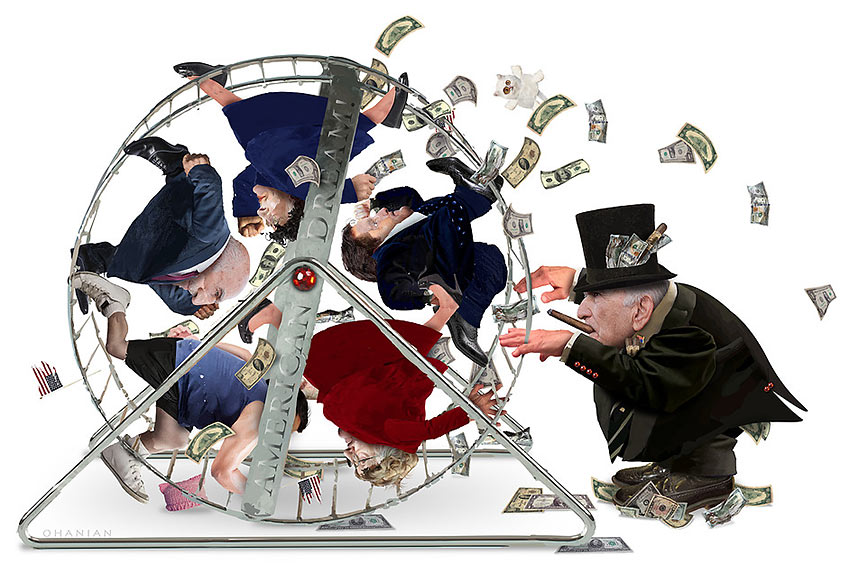
The essay gives the example of “entitlement reform as a tough sell from a discredited congress. Given the wealth gap and our often unwise budget priorities, today I’d look at entitlement reform mostly as addition, not subtraction, as in expanding Medicare or increasing social security.
In the oops category, my bad (really bad), in the essay I lauded then-Comptroller of the Currency Eugene Ludwig’s regulations “modernizing” the finance industry. It appears Ludwig was complicit in Bill Clinton’s undermining of the Glass-Steagall Act of 1933’s separation of commercial and investment banking. It’s still a great example of the issues phonies like Chuck Schumer dance around and speak out of both sides of their mouths about in order to generate campaign contributions from competing interests. But allowing banks to muddy the waters between commercial and investment banking, with tax-payers on the hook, brought about one of government’s greatest catastrophes. I’d sure like to disappear any favorable connotations in that example from the essay. So it goes.
You’ll note my essay below was triggered by illegal foreign money contributions to Bill Clinton via bag men like John Huang. An affair known back then as Chinagate. The Clintons were ahead of their time in so many ways. Since then, Citizens United has made the barriers to influence via campaign money from foreign interests laughable, as predicted in the grand dissent by the late Justice John Paul Stevens, as noted in The Intercept.
Into the time machine:
King of the Hill
Disclosure alone won’t topple campaign money as the ruler of Congress.
From Barron’s Other Voices, Jan. 13, 1997
Not Long ago the Clinton Administration crowed about agreements with a number of countries to curb bribery in business abroad. Wide implementation of measures such as tax-deductibility of bribes is still a long march away. Still, the laudable effort reflects the belief in U.S. charges that corrupt practices such as bribery in foreign procurement produce inefficiency, surprise derailments and social instability. The stock retort from parties resisting reform: There isn’t a dimes difference between bribery abroad and the U.S. campaign-finance system.
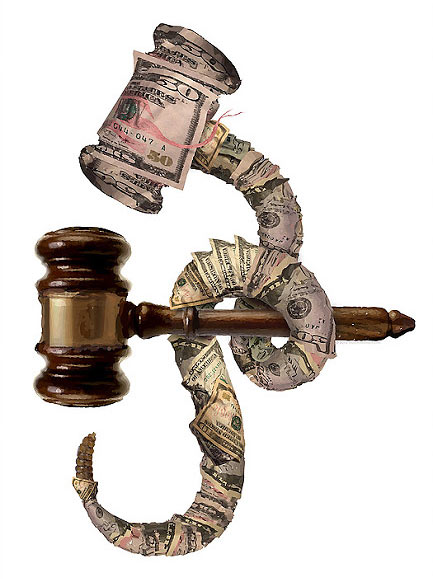
So that was the view from yesteryear, and as mentioned the continuum only tilts in the wrong direction. “Realpolitik” – politics based on the (alleged) practical instead of on moral or ideological considerations – has completed its takeover of the party leadership of both parties. A major selling point for Nancy Pelosi holding the reins is her fundraising prowess. From my perspective that’s simply her ability to pawn policy while putting the Democratic Party in hock to the big money. And so we’re treated to the once-laudable Pelosi and her staff both publicly and behind the scenes undercutting Medicare for All. Run for it, Desdemona! Iago has nothing on Pelosi’s style as she sows seeds of doubt. Same for Pelosi’s quiet eloping with the center-right and fossil fuels resistance to the Green New Deal.
Benjamins on the march. And so we have Joe Biden telling wealthy donors that nothing fundamentally would change if he were president. I can’t ignore the feeling that Kamala Harris, whom I believe to be one of Wall Street’s Manchurian Candidates, let Goldman Sachs alumnus and current Treasury Secretary Steve Mnuchin off the hook after his predatory piracy in California via his OneWest Bank to send a strategic signal to Wall Street because she anticipated seeking Wall Street campaign largess. It may not always be immediately apparent, but nearly everything in government is twisted and distorted by the hunger for campaign contributions, which makes politicians as calculating as junkies looking for a fix.
Pardon the digression but remember when Eric Holder, the original Wall Street Manchurian Candidate for 2020, announced in April of 2018 his desire to be President? The response was a wet fuse, but Holder still waits in the wings. Perhaps he’s waiting to be called onto a compromise ticket, or to a cabinet fiefdom, or maybe a door-prize Supreme Court appointment. If instead of Sanders and/or Warren someone like Biden prevails, Holder is at least guaranteed influence and a big ka-ching from Wall Street for exercising it. Holder’s using an anti-gerrymandering group, All on the Line, as his stalking horse. The group’s entreaties mimic campaign-style fundraising as he creates a list of potential supporters.
At some point we’ll glance at what Holder, with John Brennan and sainted Robert Mueller (!), did to whistleblowers like John Kiriakou, an intelligence operative who exposed CIA torture. But the point for now is that beyond his huge legal fees for servicing bankers, and beyond payback for Wall Street’s early support of Obama, it was also Holder’s anticipation of future Wall Street financial support that underpinned his kid-gloves approach to Wall Street’s criminals. When the next finance sector debacle is inflicted on America and on the world, it can be laid at the feet of “Hands-Off Holder” and at campaign fundraising by both major parties as they whittle away on the wobbling Dodd-Frank.
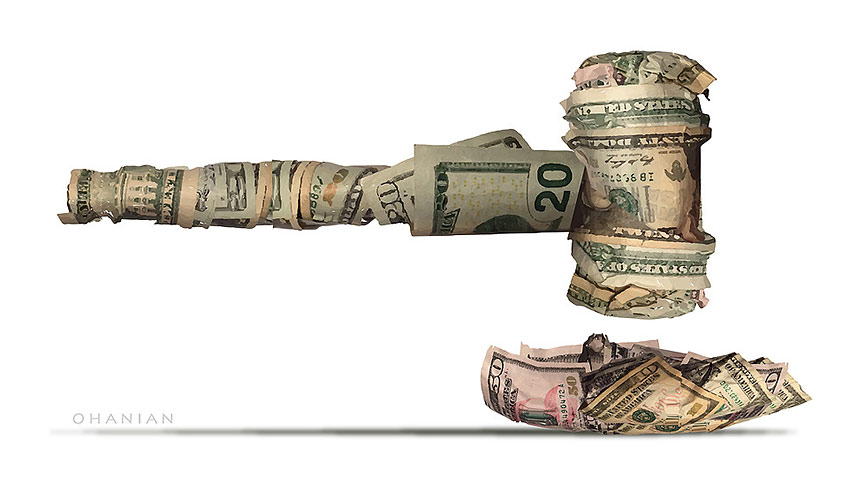
Some encouragement comes from the smaller dollar contributions championed by Bernie, coupled with the rise of alternative media not in lock-step with the mainstream. Also to the good, less expensive AND MORE NIMBLE Internet strategies to spread town-meetings and stump speeches AND SUBSTANTIVE POSITIONS CAN ESTABLISH beachheads against CONVENTIONAL, TOP-HEAVY CAMPAIGN JUGGERNAUTS. As the ESTABLISHMENT motivations of those gleefully referred to by Calvin Trillin as the Sabbath Gasbags are increasingly viewed with suspicion, the scripted propagandists will fade into their own echo chambers.
But encouragement is quickly dampened. The other day NPR’s 1A Speak Freely show interviewed Cory Booker. At the end of the show, I was pleased to hear questions I’d sent in, the fruits of reading Wall Street On Parade, asked nearly intact:
Please ask Senator Booker if he would push to reinstate the Glass Steagall Act of 1932 that separated commercial and investment banking.
Also, is Senator Booker concerned about four Wall Street banks holding $177 TRILLION in face amount of derivatives, which is 89% of all derivatives held by Federally-insured banks?
Additionally, would a President Booker end the Wall Street advantage of high frequency trading, and end the practice of opaque trading in dark pools that skirt government oversight?
In other words, what measures would a President Booker do to curb our exposure to another financial meltdown like 2008?
After which Booker opted to answer his own question, lauding himself for admittedly important efforts to get financial services to underserved communities. But he completely ignored each of my questions. Which means, whatever rhetoric is convenient at the moment, he’ll ultimately continue to knock on Wall Street’s door.
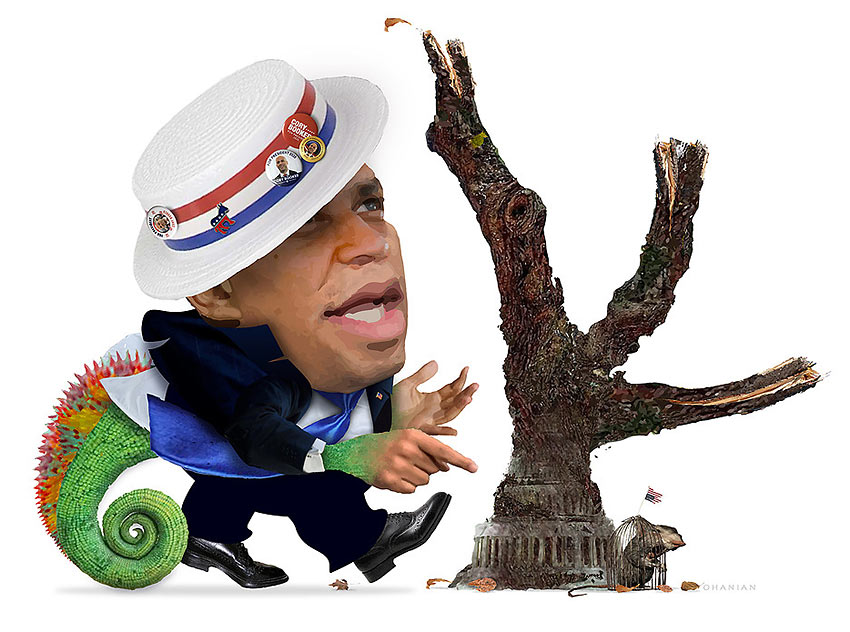
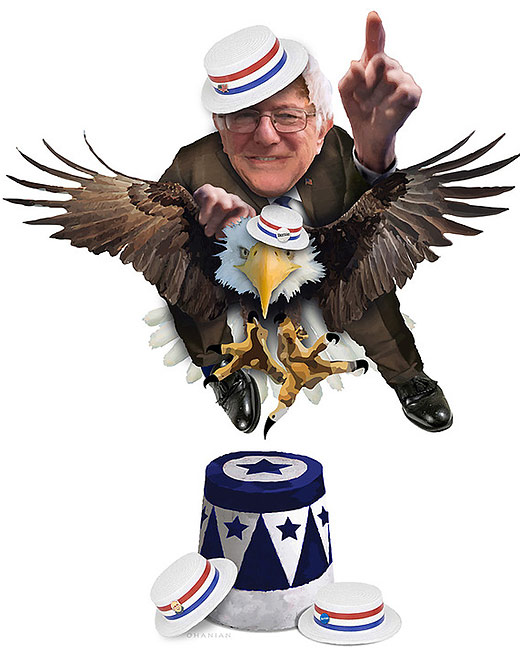
I know two who can and will reliably answer these questions: Bernie and Elizabeth Warren, neither of whom will ever raise suspicions of stealth agendas on behalf of Wall Street or of other incarnations of the Big Money. Both can lay out their cases in ways to help people better understand and voice what they see going on about them. If you believe as I do that Wall Street’s financial and political power is among the gravest threats to our country, then you’ll understand why my dream ticket is Bernie/Warren. I give Bernie the nod to the top because the time is ripe for the bully pulpit of a Howard Beal. Not a fraud like Trump but a Beal who remains sane, authentic and uncowed when corporate power puts on the squeeze. Warren has great strengths and is polishing her game nicely. But Bernie’s particularly popular in the critical Upper Midwest and in Pennsylvania, and I think he’ll do very well with Independents who feel betrayed by Trump. Bernie will round that course and come from behind like Seabiscuit.

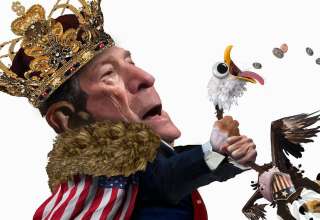





 Growing up in Kansas, Skip Kaltenheuser was tuned to travel by a traveling salesman father’s pedal to the metal vacations. He extended his reach with travel writing, and efforts such as supervising elections and doing special projects. When they’re willing to slum with him, Skip’s favorite travels are still with one or both kids, now young adults, neither indicted despite living in Washington, DC their entire lives.
Growing up in Kansas, Skip Kaltenheuser was tuned to travel by a traveling salesman father’s pedal to the metal vacations. He extended his reach with travel writing, and efforts such as supervising elections and doing special projects. When they’re willing to slum with him, Skip’s favorite travels are still with one or both kids, now young adults, neither indicted despite living in Washington, DC their entire lives.













